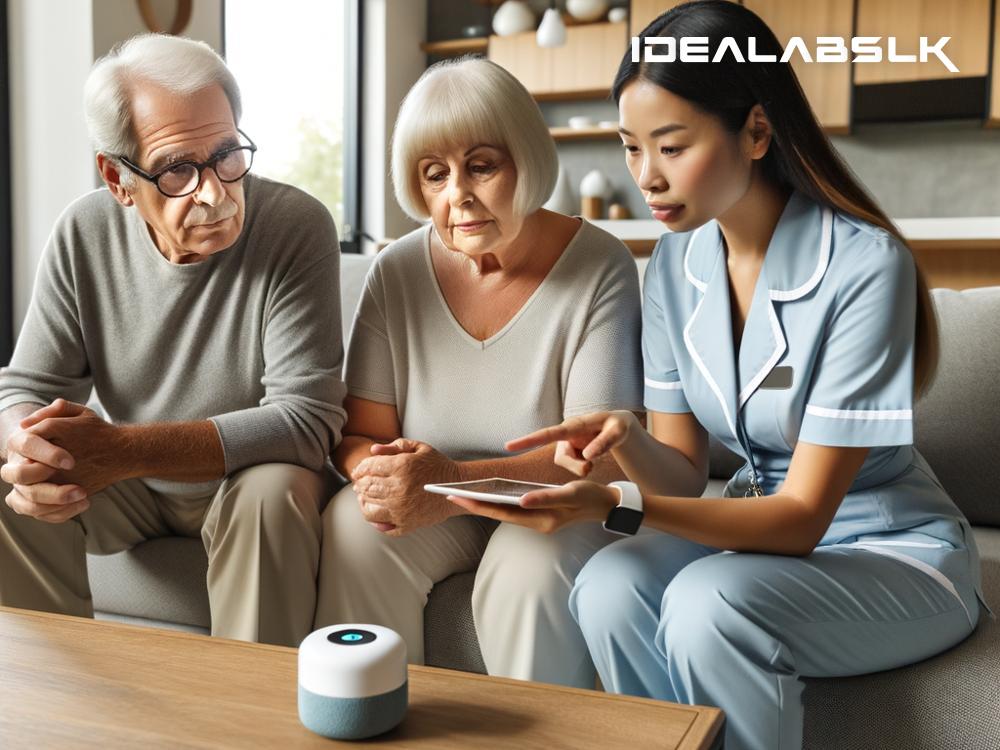Title: How AI is Transforming Elderly Care with Smart Home Tech
As we sail further into the 21st century, the remarkable strides in technology, particularly Artificial Intelligence (AI), are paving the way for a revolution in how we care for our elderly loved ones. With an aging global population, the demand for innovative solutions to assist the elderly in leading safe, independent, and dignified lives is greater than ever. In steps, Smart Home Technologies, armed with AI, ready to transform elderly care as we know it.
What is AI and Smart Home Technology?
Before diving deep, let’s break down what we mean by AI and Smart Home Technologies. AI, in simple terms, is the intelligence displayed by machines, mimicking human-like learning and problem-solving. Smart Home Technologies refer to a variety of devices, systems, or applications that control elements of the home environment — lighting, temperature, security, and more — often remotely or via voice commands.
The Marriage of AI and Elderly Care
Smart Home Technologies, powered by AI, are increasingly catering to the unique needs of the elderly population. These innovations offer more than just convenience; they promise increased safety, health monitoring, and companionship, aiming to improve the quality of life for seniors. Let’s explore how these technologies are revolutionizing elderly care:
- Safety and Security
One of the paramount concerns when it comes to elderly care is safety. AI-enabled devices can play a critical role here. For instance, motion sensors can detect unusual activity (or lack thereof) and alert caregivers or family members if something seems amiss. Similarly, smart door locks and security cameras enhance security, ensuring that the elderly are protected from potential intruders.
- Health Monitoring
Wearable health devices have evolved, thanks to AI, into sophisticated health monitoring tools. These devices can track vital signs like heart rate, sleep patterns, and activity levels, offering insights into the senior's health status. More advanced systems can even detect falls — a common risk for the elderly — and automatically alert emergency services and family members.
- Medication Management
Forgetting to take medications on time can lead to serious health complications. AI-driven smart medication dispensers remind the elderly when it’s time to take their medicine and can notify caregivers if a dose is missed. This not only ensures adherence to medication schedules but also gives peace of mind to family members.
- Enhanced Mobility
AI-powered mobility aids like smart walkers and wheelchairs are making it easier for the elderly to move around, both within their homes and outside. These devices can navigate obstacles, provide stability, and even offer suggestions on the safest paths to take.
- Social Connection and Companionship
Loneliness and social isolation can significantly affect the elderly’s health. AI-enabled devices and robots can offer companionship, engage them in conversation, and connect them with their loved ones through video calls. Some robots are designed to learn and adapt to the senior's habits and preferences, making interactions more personalized and engaging.
- Reminding and Scheduling Assistance
AI can help manage daily tasks by reminding the elderly of important dates, appointments, and when to perform particular activities. For example, a smart assistant can remind them to water the plants, ensure the oven is turned off, or notify them about a grandchild’s birthday.
The Road Ahead
While the integration of AI in Smart Home Technologies holds great promise for elderly care, it is not without its challenges. Privacy concerns, the digital divide, and ensuring these technologies are user-friendly for the elderly are hurdles that need addressing. However, with continuous advancements and increasing awareness, we are on a promising path toward creating a safer, healthier, and more connected living environment for our elders.
Conclusion
The fusion of AI and Smart Home Technologies is undoubtedly revolutionizing the way we approach elderly care. By enhancing safety, health monitoring, and independence, these innovations are not just improving the quality of life for seniors but are also providing peace of mind to their families. As we look to the future, it is clear that the role of AI in elder care will only grow, opening new possibilities for aging gracefully at home.

